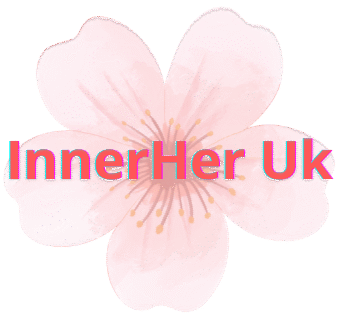Many women find themselves grappling with hair loss and anxiety, feeling overwhelmed by daily stressors that can profoundly impact their well-being. Have you ever noticed how stress can lead to thinning hair? You’re not alone. Various factors such as hormonal imbalances, fatigue, and emotional distress can contribute to this distressing cycle. In this article, we aim to explore how anxiety and stress can affect your hair health and offer supportive insights to navigate through these challenges.
Understanding the Connection Between Stress and Hair Loss
Stress has become an unavoidable part of modern life, and many women over 30 find themselves struggling with its effects. Studies show that prolonged stress can lead to hair loss through several pathways. When the body is under stress, it releases cortisol, a hormone that can disrupt the hair growth cycle. This disruption can cause hair to enter a resting phase and eventually shed more than it normally would.
But how does this happen? Under stress, our bodies react as if they are in danger, triggering a fight-or-flight response. This results in less blood flow to the hair follicles, restricting the nutrients essential for healthy hair growth.
How Anxiety Affects Your Hair and Scalp
Anxiety, a common companion to stress, can manifest physically in several ways, particularly impacting the scalp. Women with anxiety may notice increased scalp sensitivity, which can lead to excessive scratching or pulling at the hair — a reaction often referred to as trichotillomania. This compulsive behavior can result in noticeable areas of hair loss, further exacerbating feelings of anxiety and self-consciousness.
It’s a vicious cycle. Anxiety may also contribute to unhealthy habits like poor diet or lack of sleep, which in turn can impact hair health. The emotional toll of insecurity about hair can magnify stress levels, creating a feedback loop that can be hard to break.
The Role of Hormones in Hair Health
Hormonal fluctuations can significantly affect hair health, especially for women over 30. As we age, levels of estrogen and progesterone begin to decline, which may result in thinning hair and increased shedding.
Stress-related hormones such as adrenaline and cortisol can further elevate the imbalance. These hormonal changes can trigger hair loss conditions like telogen effluvium, where hair prematurely shifts to the shedding phase due to stress and hormonal changes. Understanding this connection is crucial for developing effective stress-management strategies to protect hair health.
Daily Stressors That Can Lead to Hair Thinning
Identifying daily stressors is an important step toward alleviating anxiety and its impact on hair health. Some common factors that may contribute to stress include:
- Work-related pressures: Tight deadlines and demanding workloads can induce chronic stress.
- Family responsibilities: Balancing work and family can create overwhelming situations.
- Financial concerns: Worrying about finances is a common source of stress for many.
- Health issues: Experiencing personal health struggles or caring for loved ones can heighten anxiety.
- Social pressures: Keeping up with social obligations can feel draining.
Recognizing these daily stressors allows women to take proactive steps in managing them, thereby promoting healthier hair.
Nurturing Your Hair: Tips for Reducing Stress Impact
Nurturing your hair goes hand in hand with managing stress. Here are some practical tips:
- Regular scalp massages: Stimulating the scalp can promote blood circulation and relieve tension.
- Gentle hair care: Use sulfate-free shampoos and conditioners to avoid irritating the scalp.
- Natural hair treatments: Incorporate oils like coconut or almond oil, which can nourish the hair and soothe the scalp.
- Heat protection: Limit the use of heat styling tools to prevent damage.
- Deep breathing exercises: Practicing mindful breathing can significantly reduce stress levels.
Taking small steps in daily routines can support both hair health and emotional well-being.
Mindfulness Techniques for Stress Relief
Mindfulness is a powerful tool for managing anxiety and stress. Techniques like meditation, yoga, or simply spending time in nature can provide a mental reset. Consider:
- Daily meditation: Even just five minutes a day can help clear the mind.
- Journaling: Writing about feelings can help process emotions and reduce stress.
- Limit screen time: Reducing exposure to screens before bed can improve sleep quality.
- Gratitude practices: Focusing on positive aspects of life can shift the mindset.
Incorporating these techniques into your routine can help reshape how stress is perceived and manage the physical manifestations of anxiety, including hair loss.
Nutrition’s Role in Combating Hair Loss
A balanced diet is vital for both emotional and physical health. Nutrient-rich foods can support hair growth and reduce stress levels. Key nutrients include:
- Omega-3 fatty acids: Found in fish and flaxseed, they nourish hair follicles.
- Biotin: Eggs, nuts, and whole grains are great sources for healthy hair growth.
- Iron: Spinach and legumes support oxygen flow to hair cells.
- Vitamin D: Sunlight helps the body produce vitamin D, crucial for hair health.
- Antioxidants: Berries and green tea can fight oxidative stress affecting hair follicles.
Remarkably, a wholesome diet not only contributes to hair vitality but can also uplift mood and reduce anxiety levels.
The Importance of Self-Care for Hair Health
Self-care isn’t a luxury — it’s necessary for overall wellbeing and hair health. Simple practices can create a more positive mindset:
- Set aside ‘me time: Dedicate moments each week for activities that bring joy and relaxation.
- Connect with loved ones: Spend time with supportive friends or family to elevate mood.
- Indulge in a hobby: Engaging in creative outlets can be a great stress reliever.
- Avoid negative self-talk: Remind yourself of your strengths and achievements rather than focusing on insecurities.
- Seek professional help if necessary: Talking to a therapist can provide additional support.
Taking care of oneself produces a ripple effect, positively impacting hair health amidst life’s challenges.
How Many Women Are Finding Solutions Together
Connecting with others can be incredibly empowering. Many women are coming together in support groups to share their experiences, finding strength in numbers. Sharing stories can:
- Reduce feelings of isolation: Knowing others face similar struggles can provide reassurance.
- Share effective strategies: Women often exchange practical tips and solutions for hair health.
- Boost confidence: Building a support network can create a sense of belonging and encourage self-love.
Engaging in dialogues can help reduce anxiety, proving that no one has to navigate challenges alone.
Taking the First Step Towards Healthier Hair
Every small change is a step towards healthier hair and emotional well-being. It’s essential to remember that improvement is possible. Adapting lifestyle choices gradually can lead to significant changes over time. Here are actionable steps:
- Start with one mindfulness technique: Integrate it into your routine this week.
- Plan a nourishing meal: Focus on incorporating hair-healthy ingredients into your diet.
- Reach out to a friend: Share your feelings and build a support system.
By following these simple but effective steps, many women have transformed their hair health and mental well-being. Start your journey today, and remember, you don’t have to do it alone. Take that first step, and explore how to enhance your life and hair health through supportive communities and resourceful strategies.
SEE MORE







